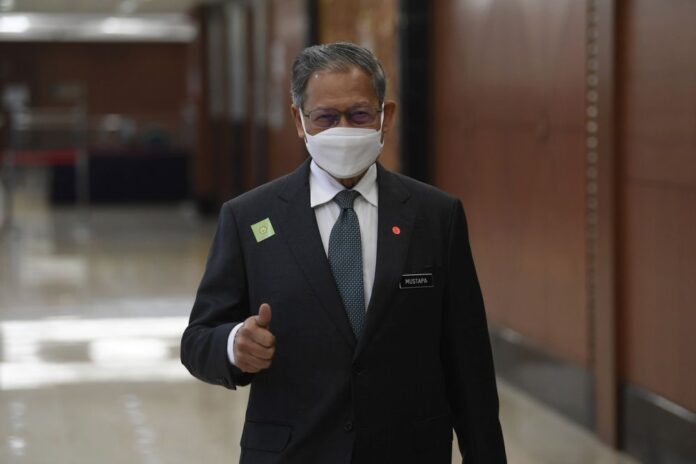Datuk Seri Mustapa Mohamed is pictured at Parliament, Kuala Lumpur September 20, 2021. — Bernama pic
KUALA TERENGGANU, Oct 17 — The federal government is committed to providing at least 50 per cent of the allocation for basic facilities in Terengganu for the implementation of high-impact projects in the state.
Minister in the Prime Minister’s Department, Datuk Seri Mustapa Mohamed said this was to ensure continuity of projects and better access to basic infrastructure, amenities and services.
“A number of the extended projects will be continued including at Kemaman Hospital and Dungun Hospital, as well as flood-mitigation projects.
“Other matters raised by the Terengganu government were on developing the islands including electricity supply provision, agriculture and health facilities,” he told reporters after closing the engagement session with the Terengganu government on the 12th Malaysia Plan (12MP), here, today.
Earlier, Mustapa had a hybrid engagement session on the 12MP with the state’s senior government officials at Wisma Darul Aman, here.
He said the government would continue with the polymer industrial park development project in Kerteh, Dungun; integrated river basin development project in Kemaman and rehabilitation of the river estuaries in Besut, Dungun and Setiu.
“The flood-mitigation project in the northern part of Kuala Terenganu, upgrading of the Chukai-Kemaman federal road, Simpang Pulai-Gua Musang-Kuala Berang road project and the development of rubber smallholdings will also continue,” he added.
Mustapa said the federal government’s initial development allocation for Terengganu this year was RM1.36 billion but the amount could not be fully spent due to the Covid-19 pandemic.
Asked on the allocation for Terengganu next year, he said the details would be in Budget 2022 to be tabled by Finance Minister, Tengku Zafrul Abdul Aziz on Oct 29.
Meanwhile, Mentri Besar Datuk Seri Dr Ahmad Samsuri Mokhtar said the state government was thankful to the federal government for its commitment to solving the issues involving land and approvals by the local authorities that had caused project delays.
“We hope that things can be speeded up by reducing bureaucracy so as to achieve the project objectives for sustainable development,” he added. — Bernama


